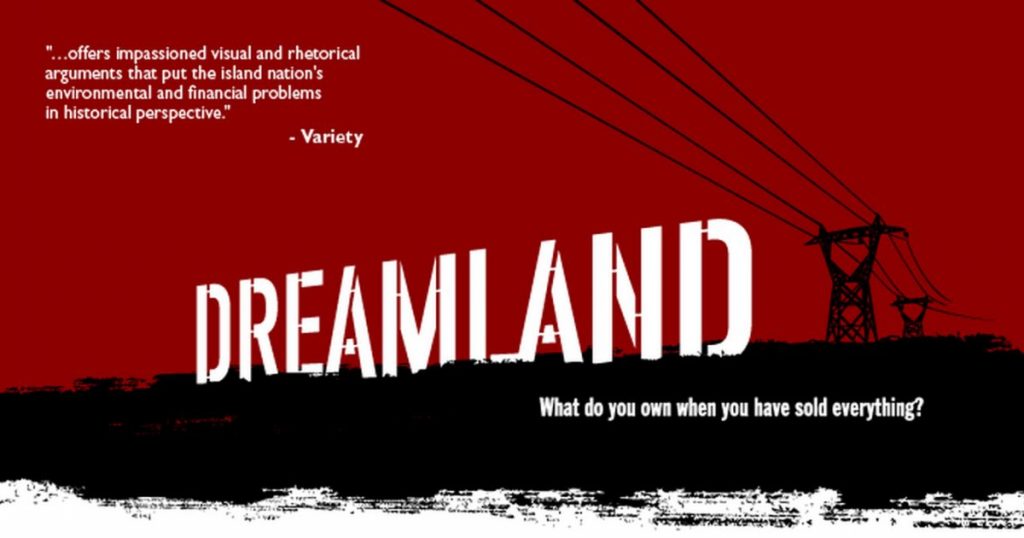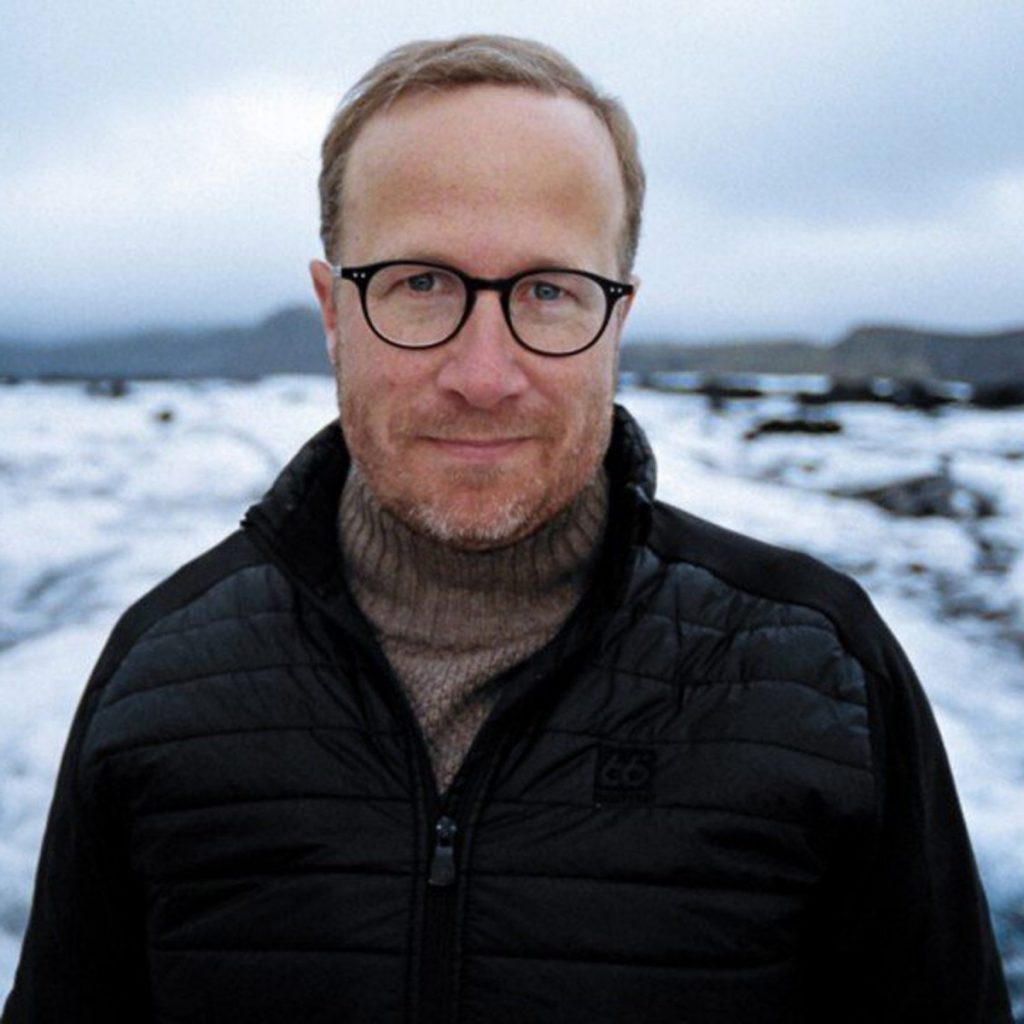
Mariia Novoselia
Staff writer
When Icelandic poet, author and filmmaker Andri Magnason published his book Dreamland: A Self-Help Manual for a Frightened Nation in 2006, he said, “many things were going quite out of order, (and) many values that I thought Iceland should stand for were going off track.”
For one, he said, Icelandic highlands – “one of the most beautiful areas” in the country – were being plundered for aluminum production.

“It’s totally unethical to sacrifice the greatest nesting place of pink-footed geese for somebody’s primary need to drink something from a can and throw that can away,” Magnason said.
Based on the book, Magnason’s documentary “Dreamland: an Icelandic Film” expands on the issues of aluminum pollution and destruction of rivers in the country. Free with a Traditional Gate Pass, the screening is at 5 p.m. today in Chautauqua Cinema, with a Meet the Filmmaker event to follow. The documentary will run in Icelandic with English subtitles.
While many people, Magnason said, claimed the destruction of nature was carried out for economic gains, he thought the “deeply wrong policy” was destroying both the environment and the economy. Putting up megaprojects, he said, was creating unsustainable work for brief periods of time.
“I called it ‘heroin economy’ – instead of a healthy energy, we were just getting these short rushes,” Magnason said.
Writing Dreamland: A Self-Help Manual for a Frightened Nation, he said, and focusing on “real issues” was a turning point in his career.
“I was not a journalist, I was not a biologist, I was not a politician; but my role as a poet or a writer gave me an opportunity to write about issues like aluminum and energy from a different perspective than you would normally see,” Magnason said.
Having begun to write short stories and poetry as a teenager, Magnason said he has had quite an unusual career.
“I sometimes say that I betray my audience,” he said, noting that one of his first books that became a bestseller was a book of poetry.
Following the success of the first collection, Magnason said he was asked for more poetry. He, however, released a children’s book instead. The Story of the Blue Planet, also received great feedback and accolades, like the 1999 Icelandic Literary Award, creating demand for another children’s book. So, he wrote a piece of science fiction instead. LoveStar — that’s “totally not for kids,” he said — won the Philip K. Dick Award with special citation of excellence and the 2016 Grand Prix l’Imaginaire in France, as Best International sci-fi. After LoveStar, Magnason published Dreamland: A Self-Help Manual for a Frightened Nation, which is a work of nonfiction.
“So, I did poetry, a children’s book, science fiction, then non-fiction, and then when I was asked for more non-fiction, I did a documentary,” Magnason said.
“Always reinventing” himself, Magnason said while he likes to experiment in terms of genres, he likes to create work on big issues and ideas. His latest book On Time and Water, he said, is about “the biggest issues that are in front of us.”
Magnason said he is working on a few projects at all times. Right now, he said, there are discussions about turning two of his books into movies.
On Time and Water, Magnason said, was in the making for about 10 years. During the decade, he said, he released two other books, one of which was with him for 10 years, too. The other of the two, he said, is a short story collection that is yet to have been published in English. The Icelandic title of the collection is Sleep, My Love, Magnason said. The oldest story in that book has been with Magnason for 18 years.
In the future, Magnason said he might make a work in the genre of a mainstream novel.
“I have an idea for a normal novel,” he said. “Of course, it will never be quite normal, but (it will be) in the genre of a traditional novel. All my work has been in some kind of non-mainstream genres, … but I am always seeking some kind of a mainstream audience for that work.”
Magnason chooses to work in non-mainstream genres not just in terms of books, but also movies.
Chautauquans will have the chance to watch another one of his films titled “The Hero’s Journey to the Third Pole – A Bipolar Musical Documentary with Elephants” at 5 p.m. on Wednesday at Chautauqua Cinema.
The movie, in production from 2016 to 2020, follows Anna Tara Edwards, an Icelander raised in Nepal, who has 13 elephants, and Högni Egilsson, contemporary musician from Iceland, as they are trying to raise awareness about bipolar disorder, which is stigmatized in Nepal, according to the movie’s trailer.
“In our film, ‘The Third Pole’ is a symbol for balance. If you are bipolar, then just keeping yourself on the line between the highs and the lows, or rise from depression, can be a heroic task. Not everyone survives,” said Magnason and Anní Ólafsdóttir, who co-directed the movie, in a 2021 interview for Nordic Watchlist.
Working on the film, Magnason said, came as a surprise – he was talking to Egilsson, who has bipolar disorder and was going to Nepal to throw a mental health awareness concert in Kathmandu.
“He invited me to come along, (and) with one week’s notice, I was in Nepal and following him,” Magnason said.
The screening of “The Hero’s Journey to the Third Pole – A Bipolar Musical Documentary with Elephants” is also free with a Traditional Gate Pass. Magnason said he is excited to show his films to a foreign audience and hopes to leave a mark on what Chautauquans think about the importance of nature and landscapes.




